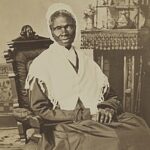How we talk about sex shapes how sex is talked about. If that sounds like a circular argument, good, because I see our social understanding of sex as a feedback loop. The words we use, the meanings we ascribe to them, and the context in which they are given, all contribute to the way we and others understand the topics we describe. Words can be arbitrary, but they are no less important in communication.
(Transcript)
Hi, I’m Kenneth, and this is the Unspeakable Vice Podcast, where we talk about talking about sex. Sex is a dirty word, a taboo, something that just isn’t talked about. We’re about to dig into why.
I have mixed feelings about words. On the one hand, words are of crucial importance. Words are one of the few ways we have to communicate. When we try to communicate deeply personal, vital, existential ideas, it is critical that we use the right words.
On the other hand, as someone who does not particularly care for labels, I see words as nothing more than labels. And like any label, words can mean different things to different people, they can come with baggage, or unintended meanings, and they can be easily misunderstood.
@thefeministvibe has been posting on Instagram about words, lately, and some of the comments illustrate that different people have different ideas about their definitions. For example, in a post about masculinity, commenters equated masculinity with being a man, or with being misogynist, or with having a penis. When someone posted that “any gender can be masculine,” several other commenters got very confused about the thought that masculinity could be separated from maleness.
When we use a word like masculinity, or feminist, obviously it is important that we use the word in the right way, with the right meaning. Right? Otherwise our message won’t be communicated correctly. People might misunderstand us. They might misunderstand us anyway, but if we use the right words at least we have a chance at being understood.
This reminds me of something Sergio Barrera said in our last episode. He spoke about a man who might say, “I am a straight male who enjoys in the pleasure with other men,” and Sergio said that he couldn’t question that man’s experience or his choice of labels, and he wouldn’t assume that this man is gay or bisexual.
And this brings up the counter-argument to the importance of words. Because Sergio also said that these terms, like straight or bisexual, can be arbitrary. I asked last time, how can we possibly talk about these things if the words we use are arbitrary and thus meaningless?
Words Have Meaning
On the one hand, words are meaningful. Knowing that there is a difference between transgender and transsexual, and knowing what that difference is, is important in order to understand the person who is transgender, and so that we don’t offend that person by using the wrong label.
What kind of feminist are you?
In a college course I took last year, we had a discussion which started by asking everyone in the room, “What kind of feminist are you?” I had no idea how to answer because the question never occurred to me. All kinds of thoughts went through my head. Am I a feminist at all? Is a guy even allowed to be a feminist? Because I believe in all the things that feminists believe, does that automatically make me a feminist? Or does the label impart something else, a membership in a club, a solidarity with other women, or a position necessarily in opposition to men?
Just hearing the term, it sounds like feminism has something to do with femininity, or with women. It sounds like it must obviously be contrasted with masculinism, but of course nobody ever talks about masculinism. It doesn’t exist. Or more precisely, what could be called masculinism is actually the status quo, the assumed starting point within our patriarchal culture.
So, as I started to formulate my own understanding of feminism, in order to start wrestling with the question of what kind of feminist I was, required me to understand much more than a single word. I had to learn about the history of patriarchal assumptions so that I could see how feminism acted as a response, a reaction, to that status quo.
Unfortunately, even among feminists, there is no agreement on precisely what the term means.
Words Are Arbitrary
From the beginning, feminism has been controversial. Conservative men have tried to pigeonhole feminists into a small corner of irrelevance. Feminism has been equated with lesbianism, man-hating, or radicalism. And so in the beginning, some feminists pushed back by saying “We’re not radical, and we don’t hate anyone. We just want to be treated with the same dignity as a man is.” And so early feminism was defined as being about demanding certain basic rights for women that were already afforded to men.
Who is a woman?

But different women, and especially at different times in history, had different ideas about what feminism meant. Sojourner Truth famously (and inaccurately, but that’s a different story) exclaimed, “Ain’t I a woman?” questioning her perceived exclusion from feminist goals. As a black woman, she did not see the feminist movement as demanding her dignity, where being black was at least as important a determinant of her position in society as being a woman. Evidently, the feminism of the time was interested primarily in the dignity of white middle class women, not all women.
Truth’s comment also brings to question what it means to be a woman. Is a black woman actually a woman? Culturally, there are (were? are?) big differences in how a white woman and a black woman are treated. Thus comes the concept of intersectionality. Being a woman can mean something different to different people.
You can see this discussion frequently when it comes to trans people. Are trans women real women? Some would respond with an adamant “yes!” Others might say “it depends.” For example, many government agencies are far more interested in what is written on a birth certificate (male or female) than on any external representation or internal psychological indications of gender. Sporting organizations that have segregated competitions for male and female athletes (for fairness, of course, since women can’t possibly be expected to compete against men) often have dubious or arbitrary ways of determining the sex of their competitors.
Words have many meanings.
So, words can be arbitrary. If the same word means very different things to different people, then it is ripe for misunderstanding. And it becomes very difficult to have a conversation about it. If my idea of straight means that you are only ever interested in someone of the opposite sex, then I’ll never understand the straight man who enjoys sex with other men. And my whole conception breaks down when I am confronted with people whose sex is not as clearly defined. If someone is allowed to be neither male nor female, or both male and female, then my idea of the opposite sex breaks down completely. Never mind what it means to be straight, then.
Back to @thefeministvibe, they sum up modern feminism in all its inclusive glory:
We should change the name feminism. Idk, I think it should be called something different like.. uhm.. Common sense?
@thefeministvibe
I’m not sure how much this actually helps people understand, but there’s a point that feminism only holds meaning when it is opposed to something. When the opposition disappears, that is, when the assumptions that feminism works to break down are broken down, the demands and the position of feminism become obvious. They become common sense.
Arbitrary is Not Meaningless
Here’s the thing, though. Just because we can’t pin down the definition of a term does not mean that it is meaningless or that we shouldn’t use it. For a long time, I have been telling people that I don’t like labels. Particularly when people ask me if I’m gay, I have a hard time answering. It’s not that I don’t know who I am, but I struggle to find words to communicate it.
Do I prefer the company of other men, when it comes to sexual intimacy? Yes, absolutely, we can get that out of the way. But if I were to answer the question with a yes or a no, I fear that people would misunderstand. “Yes, I’m gay,” could mean that I have a fetish for Barbara Streisand or that you might catch me binge-watching the last season of Ru Paul’s Drag Race on a lazy weekend. Frequently, if a guy asks me if I’m gay and I say yes, he might actually hear, “I want to have sex with you,” which is, in many cases, not at all what I would intend to say.
A quick aside: this is a frequent argument when it comes to women and feminism too. A woman wearing a beautiful outfit that highlights her femininity and her sexual appeal might frequently be seen by men as implicitly saying “I want to have sex with you.” Perhaps it’s true, but more likely the woman is saying, “I am comfortable with my body,” or, “I like the way I look.” See how easy it is to misunderstand?
And that is why I don’t like labels. There is all that baggage that comes with a term like gay. Or feminism. Some people were so loathe to call themselves feminists that they decided to create a new word.
Alice Walker

Alice Walker, in 1979, following in the path started by Sojourner Truth well over a hundred years earlier, started talking about womanism to distinguish the struggle of black women from women in general. Or, perhaps (since womanism is at least as hard to define as feminism) maybe this term is saying that the idea of being a woman, or being feminine, is inseparably intertwined with the culture from which it arises.
With different kinds of feminism, and terms that have arbitrary meanings, it is easy to think that they lose all meaning. But I want to argue that they still have deep meaning even if that meaning is not clear and concrete, and certainly not the same in all contexts.
Even though I don’t like labels, I have found myself OK with the term queer. All terms have baggage, and queer used to be a derogatory term, and just like any term its meaning has changed over time. But maybe I resonate with the baggage, or maybe the current definition hits a little closer to home for me. I’m not really sure. I think it comes down to the idea that, in my mind, queer evokes difference, deviance maybe. What I mean to say is that to be queer is to not fit a mold. To be queer is to exist outside the box. It is to resist labeling.
People hold onto labels, even though they can be misunderstood and they may not be the perfect word, for many reasons. For one, words are all we have. Maybe sometime in the future we will develop a perfect language that allows us to communicate things perfectly, without ambiguity or confused meanings. Until then we are stuck with what we have.
Then again, maybe not. Maybe these words are the best we will ever have. We can and must continue to refine their meanings, to explain them, but we may always struggle to define and talk about complicated topics. Words like gay and straight and feminism and queer will always have different meanings to different people, and we’ll always have to be careful how we use them. Especially when we are talking about people other than ourself, because we can never really know the experience of someone else. We can only invite them to speak it in their own words, and listen to them carefully and with an open mind.
Sarah Ahmed

Sarah Ahmed is another theorist who struggled with the mainstream definition of feminism. Like Sojourner Truth and Alice Walker, she realized that the assumptions white middle class feminists sometimes have about the world left some people out. Ahmed has a different experience of race and culture, though, because her heritage includes having family from Pakistan. For her part, Ahmed understood the difficulty of finding the right words. But instead of inventing a new word, she suggested that it might be truly impossible to talk about revolutionary topics while stuck inside the system being opposed.
Patriarchal reasoning goes all the way down, to the letter, to the bone.
Sarah Ahmed
If feminism opposes the patriarchy, then as long as we are operating within the patriarchy, it might be impossible to truly understand what feminism means. “Patriarchal reasoning goes all the way down, to the letter, to the bone,” Ahmed says. And, consequently, “what you aim to bring to an end some do not recognize as existing.” When all we know is patriarchy, it is hard to envision an alternative. It is hard to even see patriarchy as a thing. It’s like the air around us. We breathe, and we know its there in theory, but, having never experienced a space without air, it is hard to really understand what the context does to our understanding of it.
Communicating is Hard Work
It is difficult to understand feminism when everything we know is based on assumptions that feminism claims are false. This is the same difficulty that people have understanding Black Lives Matter, if they don’t see that systemic racism is a thing. And for me, trying to communicate to others my sexuality that does not fit into a tidy little box, it is difficult to find words that don’t carry baggage that would interfere with the meaning I intend.
So what do you do when someone does not see the inequality that you are asking them to change? What do you do when someone does not understand where you are coming from, because they have no way of seeing it from their viewpoint? The words we use are insufficient and problematic. But we must still use them. We must have words, otherwise we have no way of communicating at all. But we must use our words carefully, and we must define them in case someone might have a different definition.
Sarah Ahmed, for her part, works hard to “find ways not to reproduce [the patriarchy’s] grammar.” She considers her words carefully enough that she does not contribute to the problem she is attempting to expose. I often try to do the same thing, for example not using he or she in a way that would exclude people who are neither. But, as she pointed out, patriarchy goes all the way down. It is impossible to escape, at least not all at once.
But we have to try. We can’t give up, we have to find ways to work within the system to dismantle the system, because that’s where we are. When talking about sex, if we can find ways to do so without contributing to the shame, silence, and oppression that is so common to the conversation, that will at least allow us to start thinking about how to get rid of those barriers that still remain.
I know it’s hard. I am in the process of defining my career around sex communication, and yet it is still challenging for me to do it. Even I am not unaffected by the shame, by the pressure to stay silent, that I talk about. But I believe that any pressure in the right direction will ultimately contribute to our collective motion to start rooting out those things that stand in our way.
I say that sex is a dirty word, a taboo, something that just isn’t talked about. If we want to change that, we can start by speaking as if sex is natural and healthy, it is everywhere, and we don’t shy away from it when it is uncomfortable. Speaking about a thing won’t change it overnight, but it will create the conditions in which change is possible.
So, yeah. Keep talking. And thanks for listening.




One reply on “Episode 3: The Importance of Words”
[…] might remember from our previous episode, as I was talking about words, labels, and so on, that many people see masculinity as being […]